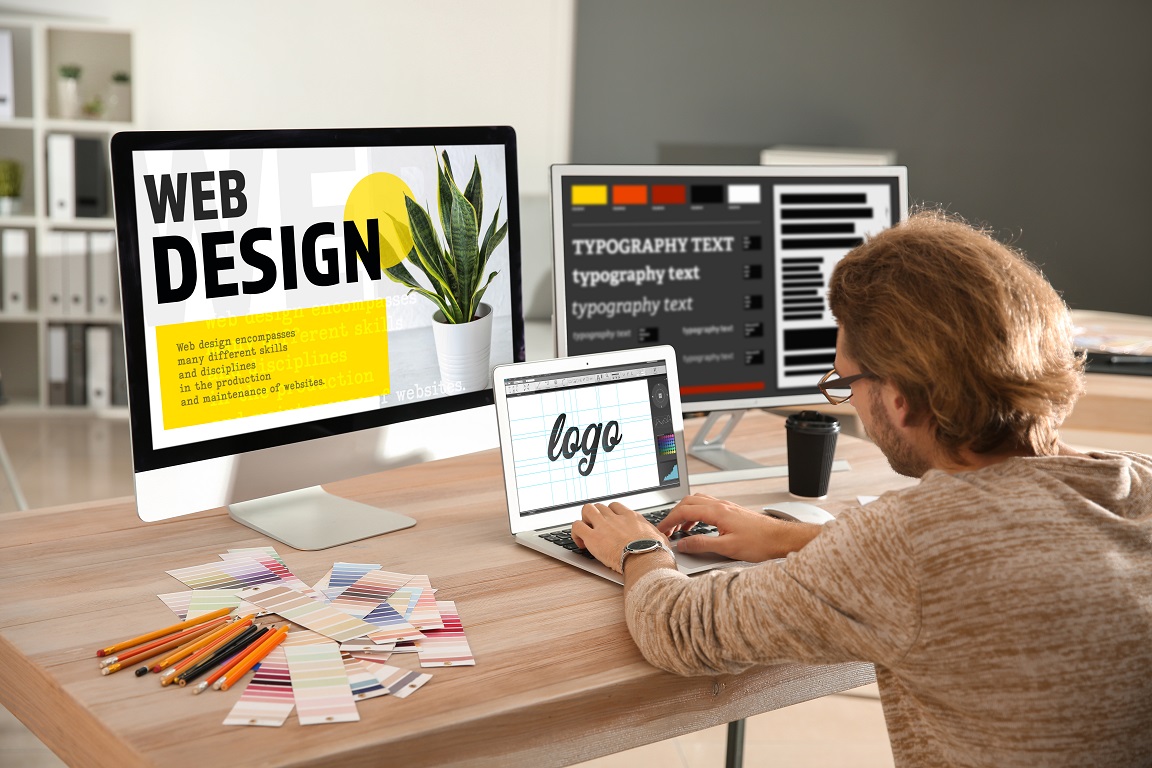Just How to Accomplish a Balanced and Aesthetic Web Style That Meets the Diverse Demands of Customers and Services Alike
Achieving a balanced and aesthetic website design that efficiently fulfills the diverse requirements of individuals and businesses requires a nuanced understanding of both style principles and individual habits. By integrating components such as color, typography, and imagery with the necessary aspects of functionality and access, developers can produce engaging electronic experiences. Nevertheless, the obstacle hinges on guaranteeing that these components interact cohesively while attending to the one-of-a-kind requirements of diverse user groups. Just how can one browse this intricate landscape to strike the right balance? The answer may depend on a deeper exploration of key design techniques.
Comprehending User Demands
As website design progressively comes to be a vital aspect of customer experience, recognizing customer needs emerges as a fundamental action in producing effective electronic environments. web design. An extensive grasp of customer needs is necessary for creating web sites that not just bring in site visitors however likewise engage and preserve them. This understanding can be attained with various approaches, consisting of individual research, studies, and functionality testing, which give insights right into individual choices, habits, and discomfort points

Moreover, understanding individual requires includes responsiveness and access, ensuring that all users, despite gadget or ability, can navigate the site perfectly. By embedding user-centric concepts right into the layout procedure, internet developers can create balanced environments that meet the diverse needs of both users and companies. Eventually, prioritizing user understanding causes a lot more significant communications and enhanced general fulfillment with the electronic experience.
Concepts of Visual Design
A user-centered approach naturally leads to the factor to consider of visual layout principles, which play a crucial duty in forming the general user experience. web design. Effective visual layout balances elements such as shade, typography, images, and design to create a visually enticing user interface that resonates with users
Shade theory is fundamental, as it stimulates feelings and influences perception; hence, a thoughtful color palette can boost brand name identity while ensuring readability. Typography, on the various other hand, adds to the layout's clearness and hierarchy, guiding customers via the web content flawlessly. Choosing fonts that straighten with the brand's individuality promotes recognition and involvement.
Imagery is an additional vital component, providing context and visual rate of interest. Top quality photos must matter and support the general story while staying clear of clutter.
Moreover, the design must make certain a rational circulation of info. Making use of principles such as placement, proximity, and whitespace enhances company and helps with navigation.
Integrating these aesthetic style concepts not only draws in customers yet additionally promotes count on and credibility, inevitably leading to an extra fulfilling communication. By harmonizing aesthetic components, designers can create an interesting and remarkable experience that fulfills the diverse demands of customers and companies alike.
Significance of Usability
Usability stands as a cornerstone of efficient internet layout, directly influencing how individuals interact with a site. When functionality is prioritized, it enhances individual contentment, resulting in increased involvement and greater conversion rates.
Furthermore, a concentrate on functionality promotes depend on and reliability. Websites that are user-friendly and very easy to browse are perceived as specialist and reliable, encouraging customers to return. Alternatively, poor use can bring about high bounce rates, as customers quickly desert sites that annoy them.
Furthermore, use is important for fulfilling diverse customer demands. Eventually, by prioritizing use, internet developers create an even more engaging, reliable, and reliable on the internet experience that benefits both users and companies alike.
Accessibility Specifications in Style
Incorporating ease of access standards in website design is necessary for creating a comprehensive on the internet setting. These requirements, mostly laid out by the Internet Content Access Standards (WCAG), make certain that all customers, including those with specials needs, can efficiently communicate with digital material. By adhering to these guidelines, designers can enhance functionality throughout numerous platforms and tools.
Trick facets of accessibility consist of giving alternate text for photos, making sure sufficient color comparison, and using clear and consistent navigation. Furthermore, executing key-board navigability enables individuals hop over to these guys who can not make use of a computer mouse to accessibility all performances. It is also important to take into consideration using screen viewers, which call for well-structured HTML to convey information properly.
In addition, adhering to access standards not just benefits customers with handicaps however likewise enhances the overall customer experience. Inevitably, incorporating availability official source into web design is an important action toward accomplishing a balanced and visual electronic existence that serves the demands of all individuals.
Harmonizing Visuals and Capability
While striking an unified balance in between visuals and performance is essential in website design, achieving this stability frequently presents a difficulty for developers. An aesthetically appealing website can astound customers, drawing them right into the material; however, if it lacks capability, the customer experience can rapidly wear away. Alternatively, extremely functional websites might focus on use yet risk appearing unappealing or dull.

Moreover, interactive aspects should enhance the overall layout, giving interesting experiences without overwhelming users. Elements like switches and kinds should be plainly visible and very easy to connect with, strengthening performance.
Inevitably, successful website design synthesizes visuals and functionality, creating an appealing setting that satisfies the varied requirements of users and organizations alike (web design). By meticulously taking into consideration just how each layout option effects both looks and functionality, designers can craft sites that resonate with customers while meeting their designated objectives
Conclusion
By comprehending individual needs and sticking to visual layout concepts, designers can develop aesthetically enticing hop over to these guys user interfaces that preserve capability. The emphasis on use and adherence to accessibility criteria ensures that varied user teams can communicate effortlessly with electronic platforms.
Comments on “The Ultimate Guide to Reliable Web Design for Modern Businesses”